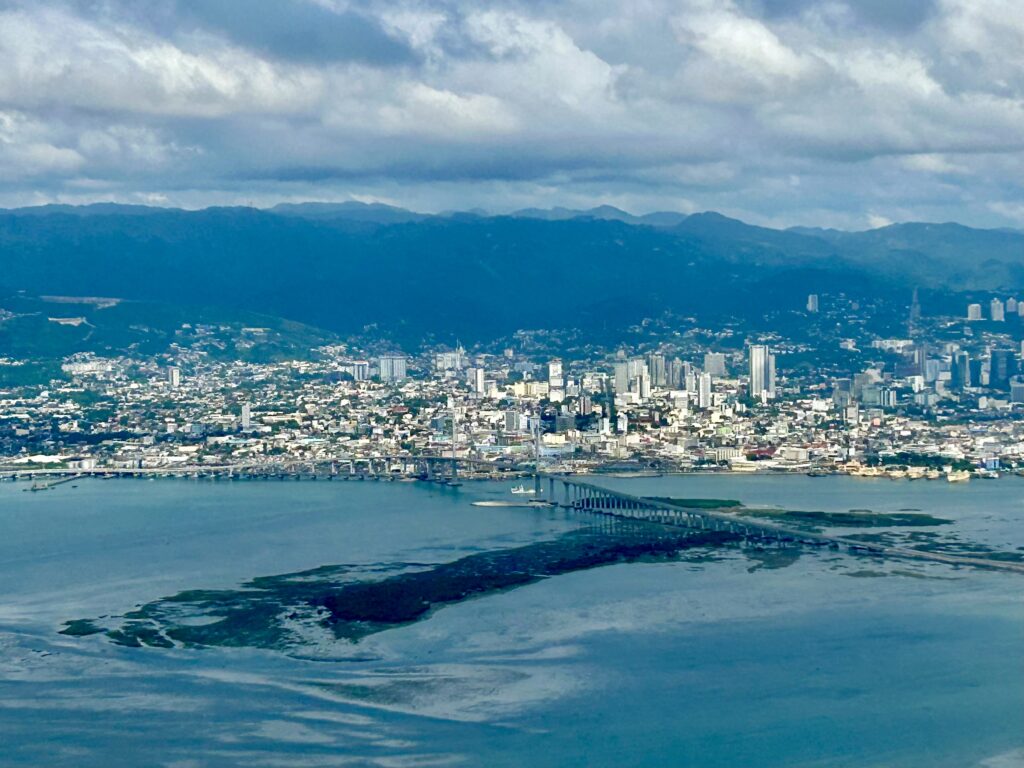Pagasa: Low chance of reaching highest temperature in May
Weather bureau says rainy season delayed by El Niño

Aerial view of Cebu City including CCLEX. CDN Digital photo | Brian J. Ochoa
CEBU CITY, Philippines – There is now a meager chance of reaching the forecasted highest temperature for May, initially reported to be between 45 and 47 degrees Celsius, according to the local weather bureau in Mactan.
Engineer Al Quiblat, the chief of the Philippine Atmospheric, Geophysical, and Astronomical Services Administration (Pagasa) in Mactan, explained that the highest temperature initially forecasted this month might not be reached because the easterly winds affecting Cebu and the Visayas are dry, not moist.
If the winds were moist, they could potentially contribute to higher temperatures, Quiblat said.
In this context, “dry” easterly winds mean that they do not contain much moisture, whereas “moist” winds would contain more humidity or moisture content. When winds are dry, they are less effective at trapping and retaining heat near the Earth’s surface. Moist winds, on the other hand, can hold more heat and contribute to warmer temperatures. This is because water vapor in the air acts as a greenhouse gas, trapping heat and raising temperatures.
READ:
Cebu gears up for hottest May yet: May 1 temperature to hit 40°C
Record heat index of 62.3C scorches Brazil’s Rio de Janeiro
‘Extreme danger’: Casiguran, Aurora logs highest-ever heat index at 60°C
Quiblat also mentioned that the heat index for May is now expected to remain below 40 degrees Celsius.
He explained that the passing showers experienced in Cebu, specifically during the evening or early dawn, are normal occurrences due to localized thunderstorms.
These are also signs of transition from the dry season to the wet season.
However, Quiblat clarified that there are specific criteria that must be met before the weather bureau can declare the official onset of the rainy season.
The criteria include the requirement that 10 Pagasa stations under Type 1 climate must record a five-day period with 25 millimeters or more of rain during May, June, or July, with no single day receiving less than one millimeter of rain over three consecutive days, and the prevailing winds must be westerly.
As of now, no signs of the onset of the wet season has been recorded yet. Usually, this occurs from the last week of May to the second week of June, but due to the presence of El Niño, there will likely be a delay, pushing the onset of the rainy season to the third or fourth week of June, said Quiblat.
Previously, Pagasa-Mactan confirmed that this May would be exceptionally hot and that the country would experience its highest temperature of the year. In Cebu alone, the heat index was projected to range between 45 and 47 degrees Celsius due to the influence of the El Niño phenomenon.
Disclaimer: The comments uploaded on this site do not necessarily represent or reflect the views of management and owner of Cebudailynews. We reserve the right to exclude comments that we deem to be inconsistent with our editorial standards.
